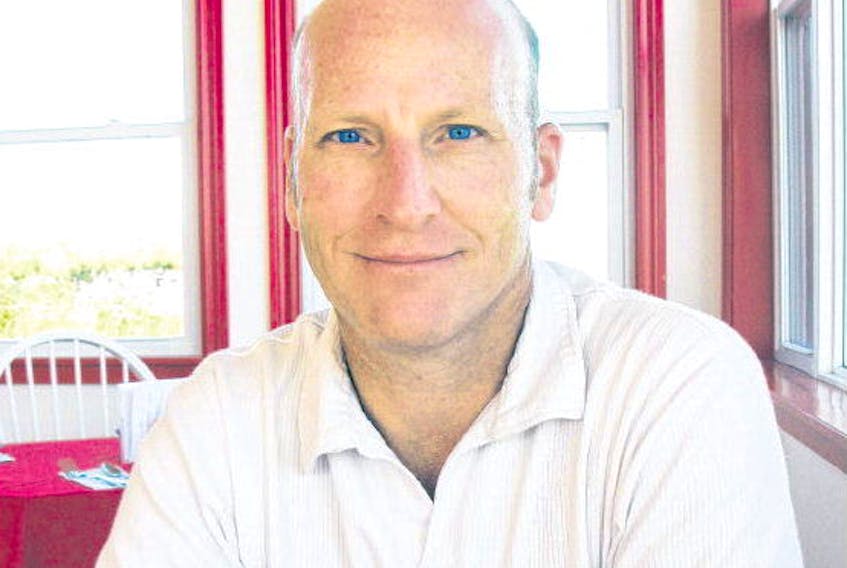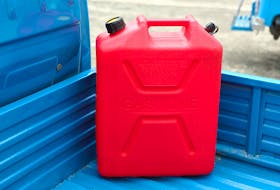When Blair Jollimore found a way to prevent dirty laundry water from backing up in the basement of his family home, he had no idea that he might be helping to save the world’s oceans.
Fixing machinery and solving problems is second nature to Jollimore, who for 30 years has worked as a mechanical engineering technologist for an aircraft engine manufacturer. In 2001, when his newly-built home on the edge of Dartmouth flooded with sewage, he started investigating. To his surprise, he discovered that the sewage spewed on the basement floor was caused by lint from his washing machine.
At the time he didn’t know that this lint, filled with millions of microfibres, was contributing to plastic pollution in oceans and waterways. What he knew then was that it was harming his septic system. Since then, he has not only learned about the harmful effects of microfibres, a form of microplastic, but wants to educate others.
“Plastic in our environment in any shape or form is not a good thing,” Jollimore said, from his Dartmouth home where he runs his business Environmental Enhancements. “If it’s (microfibres) harming the environment and we know about it, we have to do something about it.”
Every time a synthetic fabric like acrylic, nylon and polyester is washed in a machine, millions of microfibres flush down the drain and are released into the water system. Essentially microscopic pieces of plastic, similar to the microbeads found in cosmetics, microfibres are too small to be filtered out by waste treatment plants. In waterways and oceans where they end up, they
harm marine animals and the environment.
What Jollimore discovered back in 2001 was that these microfibres from his washing machine had accumulated to the point of plugging the wastewater pipe. At the top of his septic tank, he found a seven-cm thick layer of floating lint.
“It looked like someone had put a grey carpet on the top of the tank,” he said. “I said: ‘This is no good. We have to prevent the lint from going into the tank.’” He made a trip to a local hardware store and came back with some wire mesh. It didn’t work. Over the next three months, and a few more flooded basements, he trialed some prototypes, eventually modifying a water filter with a stainless streel mesh screen, that could catch the lint.
“I just came up with my own idea,” he said.
He called it Lint LUV-R. A durable filter with a reusable stainless-steel screen, the product prevents clothing fibres from being released into septic and sewage systems. It needs to be cleaned about every three weeks, he said.
Neighbours got wind of his solution. Wanting to prevent similar problems, they asked Jollimore if he could install his filter in their homes. In 2003, Jollimore attended a home show in Halifax and demonstrated his product using a pump and a huge barrel of water. The feedback he received encouraged him.
Today he sells more than 1, 000 filters a year to customers across Canada, the United States and as far away as Norway and New Zealand. Most of his sales are online through his company Environmental Enhancements. A few hardware stores in Nova Scotia sell the product too.
Mark Anthony Browne, a senior research associateat Australia’s University of New South Wales, waslooking for ways to prevent synthetic fibres fromentering the ocean and found Jollimore on theInternet. Browne, who is known for advancingscientific research and public awareness about
the harmful effects of microplastics on aquatic environments and marine life, educated Jollimore about the issue. They started collaborating. Jollimore has sent him several of his filters and Browne’s students are testing them.
Other researchers became interested in testing Jollimore’s product too. One study found that a new, finer filter he developed can capture more than 80 per cent of fibres.
While Jollimore leaves the research into microfibres up to the scientists, he believes solutions to the problem will be a collaborative effort between researchers, manufacturers, and the public. He is happy that his simple, made-in-Nova Scotia product is helping to address a global problem.
“It is just amazing that from a home in Nova Scotia, I can send a product around the world,” he said.
Jollimore believes it won’t be long before the Canadian government acts on microfibres. It already has with microbeads, found in products like facial scrubs, skin cleaners and toothpaste. This July, their sale will be banned after the Microbeads in Toiletries Regulations were passed under the Canadian Environmental Protection Act.
-ALLISON LAWLOR









